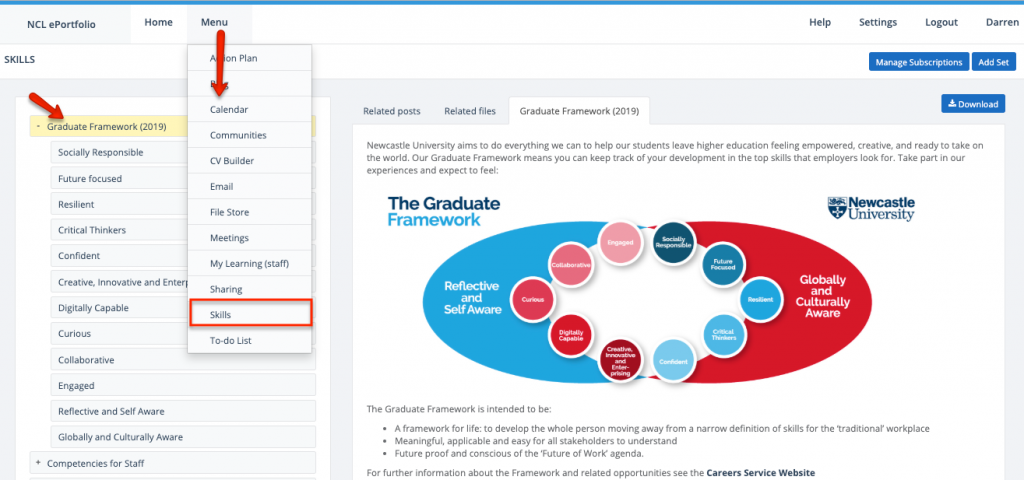To improve functionality, and in line with staff and student requests, there have been some recent updates to the ePortfolio system.
Graduate Framework
The new Graduate Framework was embedded in ePortfolio for the start of this academic year, and is now the default skill set for taught students. Students can link blog posts (reflections/evidence) to attributes of the Framework. Students can download their information as a PDF, including a summary of number of posts by graduate attribute. The old Graduate Skills Framework is still available for those who have used it previously.

Supervision Groups
Supervision Groups are used to support projects, placements and other activities. Supervisors can communicate with groups of students, whilst students share reflections and updates with just the supervisors in a safe environment for non-collaborative work.
The groups now support multiple supervisors following requests for this. In addition, the interfaces for Supervision Groups and sharing portfolio content have been simplified and made more efficient.
Placement Support
The Placements sub-system for ePortfolio supports access by external supervisors as well as students and staff. It includes rubric-based assessment, custom forms, automated form scheduling, and 3-way file sharing. This went live in 2018/19 for PGCE programmes and additional programmes are using it in 2019/20.
There have been numerous enhancements based on requests from different placement schemes, including additional options for rubric-based assessment, CSV downloads of form data, admin notes, and quick links to create record meetings.
Other Changes
There have been various other enhancements/bug fixes in ePortfolio, including:
Meeting records – now includes a duration (requested for Admin recording of meetings and avoiding overlapping events).
Accessibility – you may notice some changes, including darker colours for buttons in order to meet accessibility colour contrast requirements.
Various changes – to support switching to a new institutional data feed, which is more efficient and sustainable.
If you would like to know more about any of these changes, or would like to know more about utilising new functionality, please contact Sam Flowers in LTDS.
